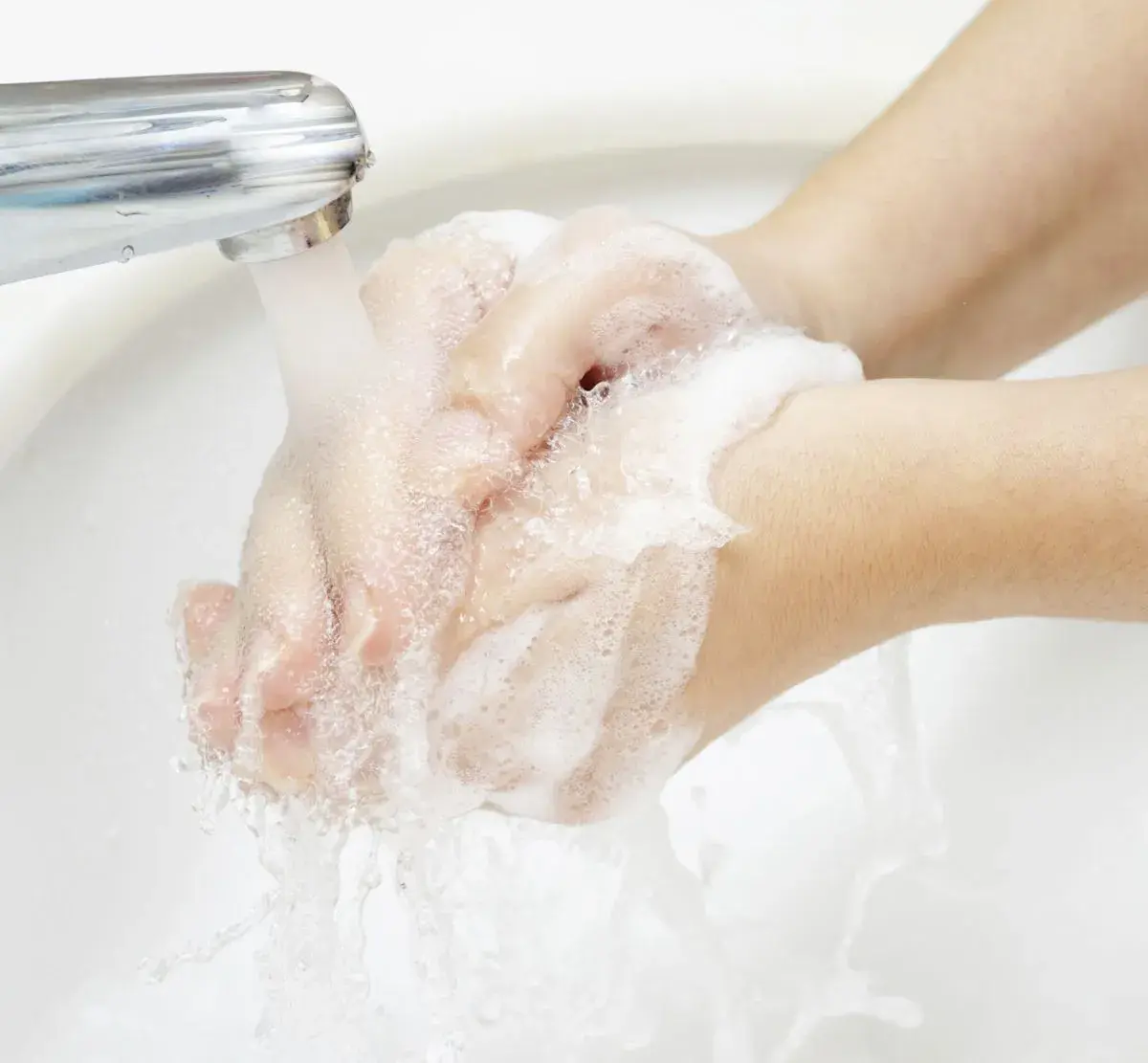Millions of reasons to wash your hands
There are about 200 million reasons to wash your hands after going to the toilet, because that's the number of bacteria present on your hands. If you don't then wash your hands, but then touch your mouth, nose or eyes, bacteria have the opportunity to enter the body through the mucous membranes.
Bad bacteria and/or germs can cause an infection such as colds and flu. The Covid virus has made us realize that washing our hands with soap is really important to prevent infections.
Reduce the risk of infections
During the day there is always the risk of coming into contact with pathogens such as viruses and (bad) bacteria. Good bacteria are important for staying healthy. The bad bacteria and viruses are simply removed by washing your hands with soap.
By washing your hands properly, the possibility of contracting an infection is reduced. A higher level of hygiene reduces the chance of cross-contamination and lowers absenteeism within organizations.
80% of infections are caused by a lack of hand washing


Viruses spread at lightning speed
Viruses such as the flu and corona spread very quickly, including through sneezing and coughing. It gets into the air and onto surfaces. Your hands are also the perfect way to spread a virus. Hands constantly touch objects that other people also use with their hands: door handles, taps, keyboards, etc.
Contamination through hand contact
In addition, bacteria and viruses are transmitted from one person to another through hand contact. This is the reason why it has been advised not to shake hands. The most important method of preventing the spread of a virus remains regular hand washing.
Research on hand washing with soap
The Journal of Environmental Health has published a study in which four thousand people were observed during the time they visited a public restroom.
The numbers from this study indicate that even more attention needs to be paid to hand washing. 10 percent of the four thousand people observed did not wash their hands at all, while 33 percent of the people washed their hands without soap. The remaining individuals did use soap, but did not wash their hands long enough to remove all the bad bacteria.

10 facts about hand washing
- Bacteria have the ability to survive for 48 hours on a surface.
- 80% of infections between people occur through the hands.
- 47% of illnesses are preventable if hands are washed properly.
- A computer mouse contains an average of 10,000 organisms per cm2.
- A keyboard contains an average of 10,000 organisms per cm2.
- Only 30% wash their hands with soap after visiting the toilet.
- A "contaminated" hand can transmit this to 5 new objects or 14 other people.
- An office worker comes into contact with more than 10 million bacteria daily.
- 90% of hospitality visitors consider a clean toilet more important than good service.
- A hot air dryer increases bacteria rather than decreases it.
In short, washing hands with soap is crucial in preventing infections. Whether preventing the flu virus, corona or the common cold, regular hand washing is wise. Creating sufficient opportunities for hand washing at work is essential to ensure the safety of staff and visitors. Education on this subject at schools and healthcare institutions, also plays a major role.
Hand washing: how to
How should you wash hands?
You do this by following the next five steps from our hand washing instruction. A minimum of 20 seconds of hand washing is recommended.
- Wet your hands under running water.
- Soap your hands thoroughly.
- Rub your hands together and do not forget your wrists and the space between your fingers.
- Rinse your hands well under running water.
- Dry your hands carefully. Be sure to use a new (unused) portion of cotton or paper from the towel dispenser.
Click here and download our hand washing and disinfection poster for free.
When should you wash hands?
It is important to wash your hands regularly, especially if you have been in crowded locations where many people congregate. It is recommended that you wash hands at least:
- After visiting the toilet.
- After blowing the nose.
- After coughing into the hand / sneezing.
- Before and after wound treatment.
- Before (preparing) food.
This prevents the spread of pathogens. And don't forget to dry your hands thoroughly. This last step is crucial and indispensable for good hand hygiene.
Some tips for hand washing products
Soap pumps are often full of bacteria. It is therefore better to replace them with soap dispensers. A dispenser with a sensor is the most hygienic choice. Toilet visitors then do not have to touch anything. This is more hygienic, because it prevents contamination via surfaces. Moreover, it is experienced as more pleasant by visitors because people do not like to touch objects in a toilet area.
Ultimately, every environment and situation is different. A toilet room in an office building has other requirements than for example an industrial environment. CWS has a solution for every situation when it comes to hand hygiene optimization.

